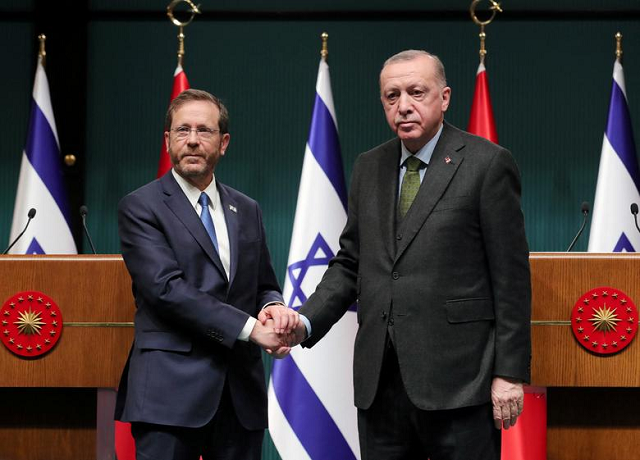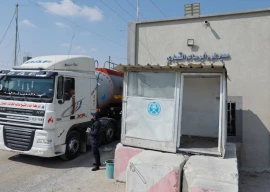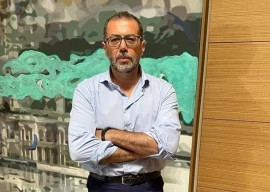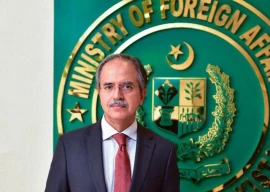
Turkiye and Israel said on Wednesday they will reappoint respective ambassadors more than four years after they were called back, marking another milestone after months of steady improvement in relations.
The two regional powers had expelled ambassadors in 2018 over the killing of 60 Palestinians by Israeli forces during protests on the Gaza border against the opening of the US Embassy in Jerusalem.
But they have been working to mend long-strained ties with energy emerging as a key area for potential cooperation.
Israeli Prime Minister Yair Lapid's office said on Wednesday the two countries decided to restore full diplomatic ties.
"It was decided to once again upgrade the level of the relations between the two countries to that of full diplomatic ties and to return ambassadors and consuls general," Lapid's office said in a statement following a conversation between the prime minister and Turkish President Tayyip Erdogan.
"Upgrading relations will contribute to deepening ties between the two peoples, expanding economic, trade, and cultural ties, and strengthening regional stability," it added.
A visit to Turkiye by Israeli President Isaac Herzog in March, followed by visits by both foreign ministers, helped warm relations after more than a decade of tensions.
Also read: Erdogan says Turkey wants better ties with Israel, talks continue
Turkish Foreign Minister Mevlut Cavusoglu said the appointment of ambassadors was one of the steps in the normalisation of ties.
"Such a positive step came from Israel as a result of these efforts, and as Turkey, we also decided to appoint an ambassador to Israel, to Tel Aviv," Cavusoglu said at a news conference in Ankara, adding Turkiye was selecting someone.
The move, which comes as Israel has sought to improve ties with regional powers, was agreed two years after the so called Abraham Accords which saw relations normalised between Israel, Bahrain, the United Arab Emirates and Morocco.
Turkiye also launched a charm offensive in 2020 to repair ties with estranged rivals, making overtures to Egypt, the UAE, Israel and Saudi Arabia. Efforts with Cairo have so far yielded little progress, but officials have said normalisation work with Riyadh and Abu Dhabi are going well.

1725612926-0/Tribune-Pic-(8)1725612926-0-165x106.webp)








1732177276-0/Copy-of-Untitled-(62)1732177276-0-270x192.webp)









COMMENTS
Comments are moderated and generally will be posted if they are on-topic and not abusive.
For more information, please see our Comments FAQ